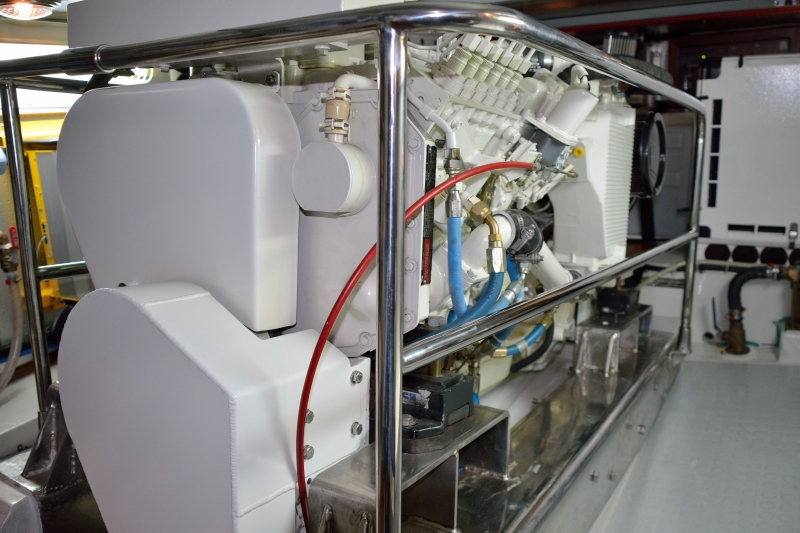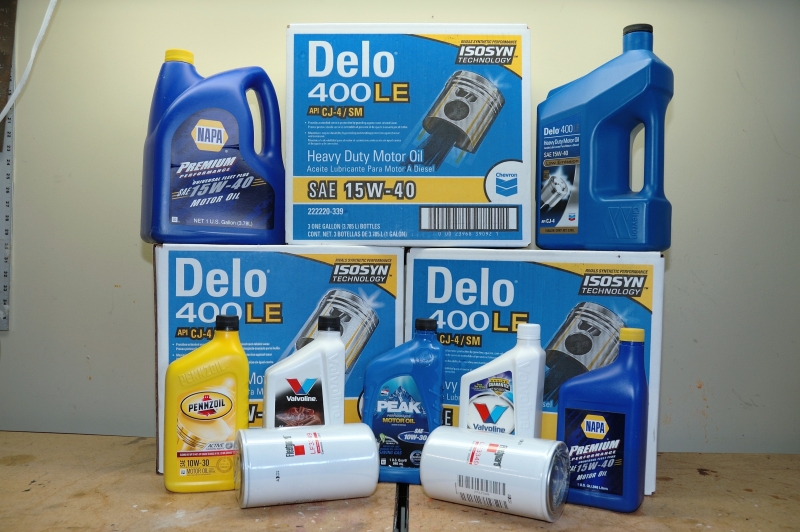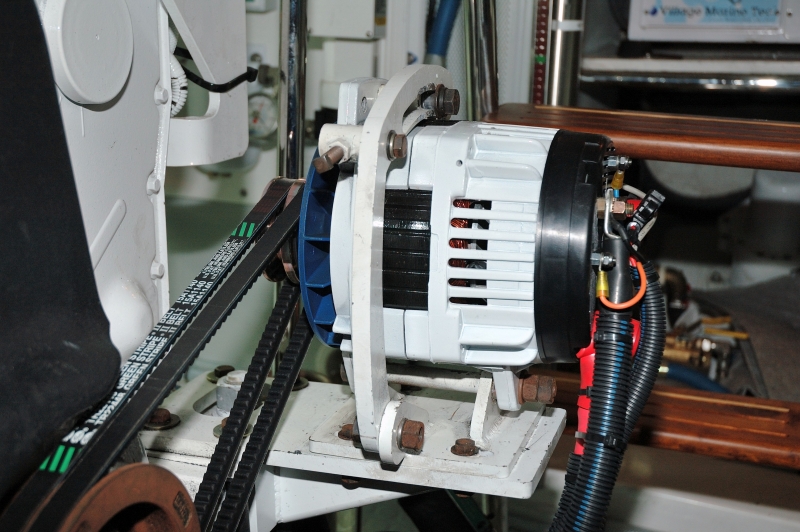Diesel Layup
19th October 2022
Diesels are hardy, but they still require winterization to ensure they will realize the longevity and trouble-free operation they are famous for. Plus, the more thorough you are about caring for your engine now, the less you will have to be concerned about in the spring. The principal area to give attention to when preparing your diesel for months of idleness and cold temperatures is minimizing any potential for corrosion. This is also the time to examine components for wear and to have them repaired.

Diesels are hardy but still require winterization.
Begin with key fluids, unless you have changed oil recently, change it now and change the filters. In addition to its lubrication properties, oil absorbs the acid byproducts of diesel combustion that can pit and weaken key engine components such as cylinder liners, bearings, and piston rings. As for the cooling system, make sure your coolant is concentrated enough to withstand the lowest temperatures that winter in your area can deliver.
If on inspection of the heat exchanger, there is a significant buildup of scale, it’s time to remove it and have it cleaned at a radiator shop before refilling the system with fresh coolant.
On the raw water side of the cooling system, remove the raw water pump’s impeller. Inspect it for wear and damage. Also inspect the shaft and cover plate. If there are any pieces of the impeller missing, they must be found, or they may clog a cooling pathway thereby creating a hot spot that could lead to cracks and leaks. Some technicians suggest replacing the impeller each year.

Now is the time to change oil and filters.
Close the seacock and disassemble the sea strainer assembly by removing the filter basket, rinse and clean strainer and bowl thoroughly, and remove all debris. Inspect the gasket and replace if required before reassembling sea strainer assembly.
Remove the air intake piping at your turbocharger for quick inspection. Look for any wear patterns or scoring on the blades or the housing. Grab the shaft to check for excessive play, it should spin very freely with virtually zero misalignment or play. If there are any issues, now is the time to get them repaired.
Inspect air intakes and filters for leaks or cracks. This would be a good time to clean or replace the air filter.
Fuel tanks should be topped off to prevent condensation in the tank. Water in the fuel provides opportunity for biological growths that wreak havoc with your fuel system. If there’s less air in the system, there’s less opportunity for buildup. That being said, boats are built to be used, and the best thing to do is to take your boat out occasionally during the winter on a nice sunny day, and who knows, you might fall in love with the joys of winter cruising. Either way, it’s always a good idea to add some Diesel Biocide to your tank and use the “shock treatment’ dose. This will help prevent and/or kill microbes growing in the fuel system.

Check for cracked or worn belts
Now is also a good time to inspect for cracked or worn belts, cracks in flanges, hoses, wiring and piping and leaks at gasket and flanges, as well. It’s easier to work on your boat at this time of the year because when spring comes around, you’ll want to be out on the water, plus you’ll have a lot more time to secure the parts and make repairs. Preparing now for spring commissioning will allow you to get back on the water faster and with a lot less hassle.
The last think you should consider is ensuring that your engine space that contains your power plant has heat and airflow. There are many options here from Stor-Dry devices for simple low heat, low air flow and low power draw up to installing hard mounted air heaters or even block heaters for your engines to keep the space warm. Cold wet air in a machinery space can cause unwanted corrosion in the area during the winter months.
These are some of the many things to check for when winterizing your boat. Every boat is a little bit different, and your boat may have additional items that require your attention. If you plan on winterizing your boat by yourself, remember to do lots of research beforehand, or alternatively you can always find a local technician to help with the process.
Here is some additional reading on winterizing your boat.
(Deane Hislop – In Partnership with Freedom Marine)


